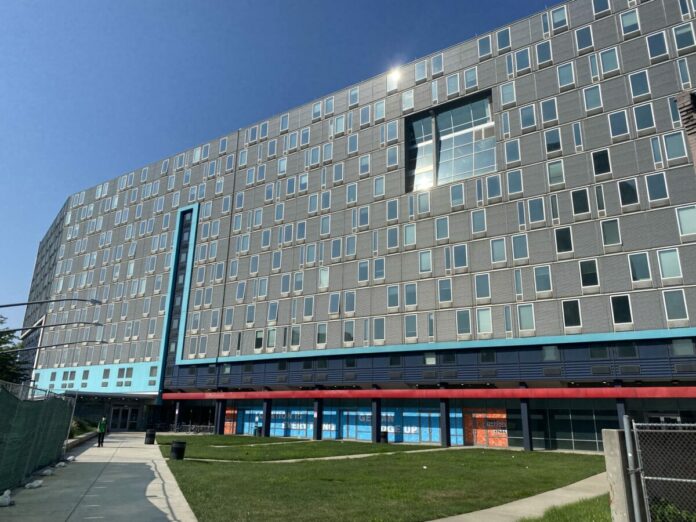With the economy slowing, banks have become increasingly more hesitant to provide loans on big projects.
That’s where iBorrow comes in.
Founded in 2013, the West Los Angeles-based firm is a direct lender that provides short-term bridge financing to commercial property owners at competitive interest rates on a non-recourse basis.
Brian Good, iBorrow’s chief executive, formed the company with Andy Smith and cousins Andy Peltz and Harlan Peltz.
During its nine years in business so far, iBorrow has completed more than $1.1 billion in private commercial real estate loans.
“We do it nationwide so we have the ability to lend across the country,” said Good. “Our average loan size is $18 million. We move quickly to secure bigger loans.”
The company lends on virtually all commercial real estate property types, including office, hospitality, mixed-use and multifamily assets.
“We’ve done everything from apartments on the Westside to affordable housing downtown,” Good said. “We’ve done office buildings downtown, some senior living, industrial, retail.”
There are areas, however, where iBorrow is not active.
“We don’t lend on land and we don’t do ground-up construction,” Good said.
Some of the short-term financing iBorrow has extended recently include a $52 million loan in Philadelphia to The Edge Student Village, a 12-story, 798-bed housing building going into renovations that serves Temple University.
Good called it a “typical transitional-type property.”
“They bought it, they saw the upside and they needed someone to come in and loan them the money to buy the building and also to renovate it,” he said.
The company recently also provided a $97 million loan in New York City for the group that was buying the American Stock Exchange building; an industrial building in Augusta, Georgia, that is owner-occupied by a publicly traded company out of Australia; an apartment building outside of Atlanta that was nearing completion; and a self-storage building in New Jersey.
“These are bank credit-worthy lenders,” Good said of the various borrowers.
Closer to home, Good is currently working on a loan for a Santa Clarita retail shopping center; the borrower has owned it for a few years and is looking to make some renovations.
“In the last three or four months, there’s been a lot of, ‘My bank turned me down and didn’t close and I need a new lender to come and close in the next few days,’” he said.
Good said iBorrow gets a lot of referrals.
“Ninety percent of our deals come from brokers,” he said.
His business philosophy boils down to a simple motto.
“We do what we say we’re going to do,” Good said. “In real estate, it actually means a lot. It seems really simple and everyone should live like that, but not a lot of people in the real estate world do.”
“We close on the terms that we quoted and we close on the time that we close, and they like that and we get repeat business because of that,” Good added.
Good has been in the real estate business for more than 25 years, starting out as an attorney. Dissatisfied, he decided to get into the ownership side of the equation.
In iBorrow, he said, he found his calling.
“It’s entrepreneurial and it’s very fast-paced” Good said. “If you’re a deal guy like I am, you’re looking at 10 to 15 deals a day. The pipeline’s changing. Our loan committee used to meet once a week, but we really meet every day to discuss how to invest money.”
While the application process is usually faster, bridge loans come with higher interest rates and are generally more expensive and riskier than traditional commercial loans, according to Credit Karma.
And with the downturn in the economy, iBorrow is benefitting from the rise of interest rates.
In June of last year, iBorrow was looking at $900 million worth of new deals. This June, the volume doubled, to $1.8 billion.
“It definitely had a material effect on our business on the good side,” he added.

